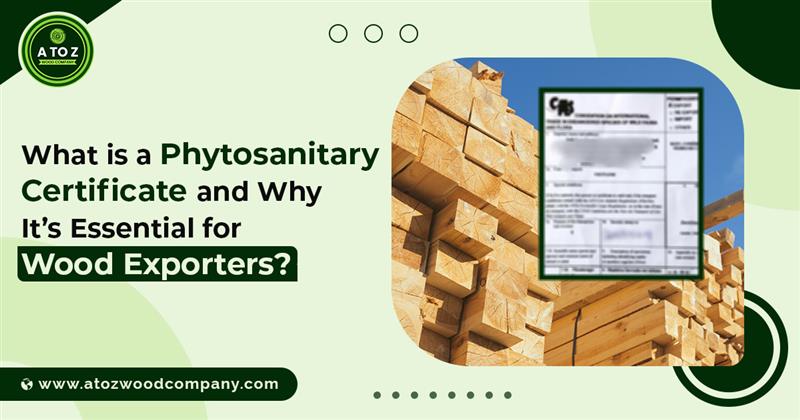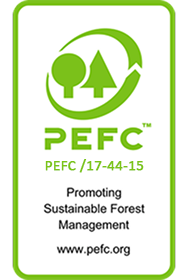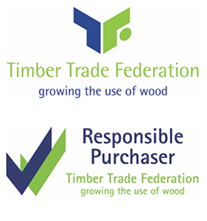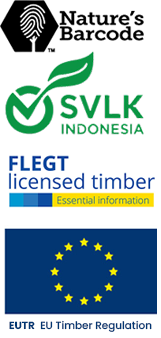When it comes to international timber trade, compliance with global regulations is not optional — it’s mandatory. One of the most crucial documents in wood export is the Phytosanitary Certificate (PSC). Without it, shipments can be delayed, rejected, or even destroyed at the port of entry.
At AtoZ Wood Company, we ensure that every log, slab, and sawn timber shipment meets strict international requirements — including phytosanitary certification. Let’s dive deeper into what this certificate means, why it’s essential, and how it benefits both exporters and buyers worldwide.
What is a Phytosanitary Certificate?
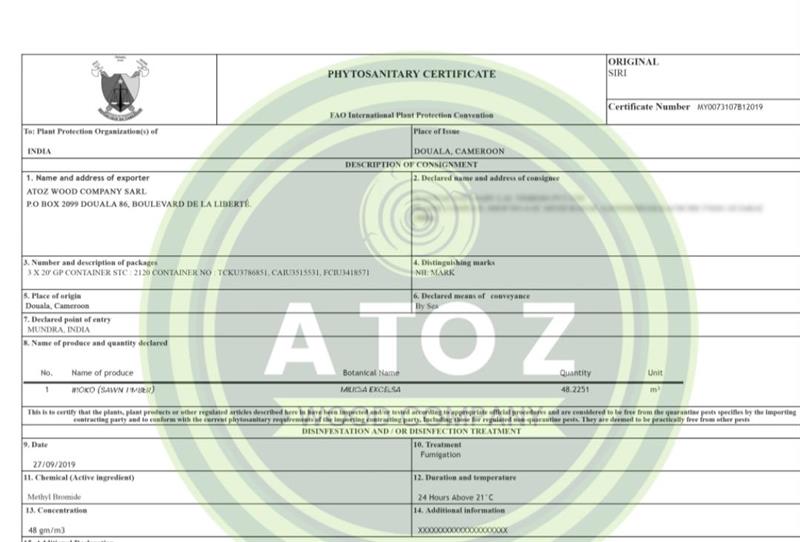
A Phytosanitary Certificate is an official document issued by the National Plant Protection Organization (NPPO) of an exporting country. It confirms that the wood, logs, or timber products being shipped are free from harmful pests, insects, and diseases that could threaten agriculture or forests in the importing country.
In simple terms, it’s a passport of safety for timber products, assuring global buyers that the wood is pest-free and safe to import.
Why is a Phytosanitary Certificate Important for Wood Exporters?
-
Compliance with International Trade Laws
Most countries legally require a phytosanitary certificate before allowing wood or timber to enter their borders. Without it, your shipment risks rejection. -
Prevention of Pest Infestation
Wood often carries hidden insects or fungi. The certificate ensures the timber is properly inspected and treated to prevent environmental damage. -
Smooth Customs Clearance
Export shipments with phytosanitary certificates experience faster customs clearance, saving both time and costs. -
Trust & Credibility in Global Markets
Buyers prefer suppliers like AtoZ Wood Company who provide certified, safe, and sustainable wood products.
Which Wood Products Require a Phytosanitary Certificate?
- Wood logs (hardwood & softwood)
- Sawn timber and planks
- Wood slabs
- Plywood & veneer sheets (depending on import country regulations)
- Wood packaging material (WPM) such as crates, pallets, and dunnage
- Wood chips and by-products
At AtoZ, every export shipment is supported with the right certificates — including phytosanitary documents — to ensure safe global delivery.
Phytosanitary Certificate vs. Fumigation Certificate
Many exporters confuse these two documents.
-
Phytosanitary Certificate (PSC): Issued by the NPPO after inspection confirming wood is free from pests/diseases.
-
Fumigation Certificate: Issued by a fumigation agency after wood is treated (with heat or chemicals).
👉 In many cases, both documents are required together for international shipping.
Countries That Require Phytosanitary Certificates for Timber Imports
Most major timber-importing countries demand PSCs. Some strict regions include:
-
United States & Canada
-
European Union (EU)
-
Australia & New Zealand
-
Middle East & Gulf countries
-
Asia-Pacific markets (India, China, Japan, South Korea)
At AtoZ Wood Company, we ship certified timber to over 30+ countries worldwide, ensuring compliance with each region’s import laws.
How to Obtain a Phytosanitary Certificate?
-
Application: Exporter applies to the NPPO (usually Ministry of Agriculture or Forestry authority).
-
Inspection: Trained inspectors check the timber for pests, fungi, or quarantine risks.
-
Treatment (if needed): Logs or sawn timber may undergo fumigation, kiln drying, or heat treatment.
-
Issuance: Once cleared, the NPPO issues a Phytosanitary Certificate with all shipment details.
-
Customs Submission: Exporter provides this document during customs clearance at both ends.
Benefits of Phytosanitary Certification for Buyers & Importers
-
Guaranteed pest-free timber
-
Smooth import clearance without risk of penalties
-
Peace of mind when purchasing from overseas suppliers
-
Assurance of quality & compliance
This is why global clients trust AtoZ Wood Company for their bulk timber supply — every shipment is properly inspected, certified, and delivered on time.
How AtoZ Wood Company Ensures Certified Timber Exports
At AtoZ Wood Company, we follow strict procedures to meet international phytosanitary requirements:
-
Geo-referenced tracking of harvested logs
-
Low-impact harvesting to protect biodiversity
-
Kiln drying & treatment for pest control
-
Collaboration with national forestry & phytosanitary authorities
-
Phytosanitary Certificate included in every shipment
We don’t just export timber — we export sustainably harvested, certified, and safe wood for global buyers.

 +237 681 25 6934
+237 681 25 6934
